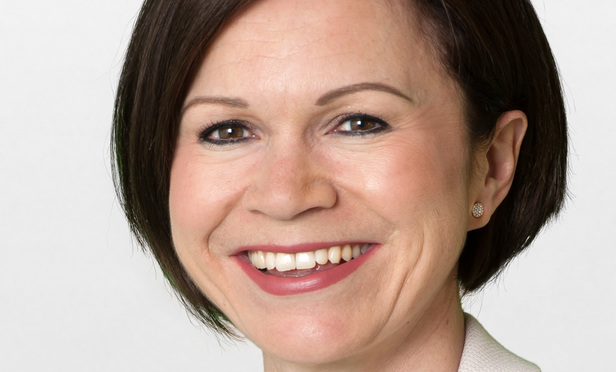BCLP named top law firm for social mobility for second year running
Bakers, Links and HSF also feature highly in ranking of top UK employers for social mobility
July 11, 2018 at 05:55 AM
4 minute read
Bryan Cave Leighton Paisner (BCLP) and Baker McKenzie have made it into the top 10 of a City of London Corporation-backed ranking of the UK's top employers for social mobility.
The Social Mobility Index 2018, created by the Social Mobility Foundation and Social Mobility Commission and sponsored by The City of London Corporation, evaluates employers' engagement with disadvantaged people as well as their recruitment and selection processes, in order to measure their social mobility performance.
Big Four accountant KPMG was ranked top, with recently merged BCLP the highest-placed law firm in fourth place – up from eighth place for legacy Berwin Leighton Paisner (BLP) last year, following BLP's merger with US firm Bryan Cave this April.
On why the firm was ranked so highly, BCLP co-chair Lisa Mayhew (pictured) said: "During the past year we initiated a research project to challenge stereotypes within the whole legal industry, in collaboration with the Bridge Group and the Sutton Trust. We interviewed and spoke with a lot of young people from lower socioeconomic backgrounds who were already in the profession, to get their insights into what the profession needs to do to improve. That has been quite a major work effort over the past year."
BCLP has a dedicated social inclusion and ethnicity group, led by partners Tim Smith and Segun Osuntokun, that focuses on outreach to schools, work experience, mentoring and opportunities for school leavers. Last year, the firm ran a two-week 'career kick start' work experience programme targeting candidates from lower socioeconomic backgrounds
"If you have a more diverse mix of people coming through your business, you're going to have a richer culture of innovation, ideas and, importantly, people who resemble our clients," said Mayhew. "We need to maintain our effectiveness of building relationships with our clients, as well as it being the right thing to do."
Bakers was the next highest-ranked law firm in 10th place, up one place from last year. Other firms to make it into the top 20 included Linklaters (11), Herbert Smith Freehills (15) and Freeths (19).
Linklaters global and diversity recruitment manager Andre Flemmings said: "Last year we started work on trying to demystify the application processes as a way of levelling the playing field. The aim is to ensure that a lack of information ceases to be a reason for underperformance, or worse, candidates self-selecting out of applying to us in the first place.
"We are very focused on storytelling and sharing perspectives, both internally and externally. Internally, we launched our 'Diverse Voices Reverse Mentoring' programme in January 2018. More than 20 senior partners – including our senior and managing partners – were mentored by junior staff, including both lawyers and business team members."
Other law firms to make the cut included Clifford Chance (22), Eversheds Sutherland (23) Hogan Lovells (36), DLA Piper (38), HFW (44), Slaughter and May (45), Mayer Brown (47) and Dentons (48).
HFW senior corporate responsibility manager Kathryn Hull said the firm had made "real strides in welcoming talent from a more diverse range of backgrounds" and that the percentage of the firm's trainees who are the first of their family to go to university had increased from 10% in 2015 to 33% in 2018.
However, despite such evidence of progress, the Social Mobility Foundation report found that more than 80% of law firm hires still come from Russell Group universities, with 90% of some firms' recruits coming from these universities, even when only half of their applicants come from these institutions.
This content has been archived. It is available through our partners, LexisNexis® and Bloomberg Law.
To view this content, please continue to their sites.
Not a Lexis Subscriber?
Subscribe Now
Not a Bloomberg Law Subscriber?
Subscribe Now
NOT FOR REPRINT
© 2025 ALM Global, LLC, All Rights Reserved. Request academic re-use from www.copyright.com. All other uses, submit a request to [email protected]. For more information visit Asset & Logo Licensing.
You Might Like
View All

Clifford Chance Further Modifies Lockstep to Better Reward Top Performers
2 minute read
UK Black History Month: Four A&O Shearman Staffers Honour Their Unsung Heroes
6 minute read
How Many Legal Jobs Will be Affected by AI? Law Firms Can't Agree
Trending Stories
- 1Lawyers: Meet Your New Partner
- 2What Will It Mean in California if New Federal Anti-SLAPP Legislation Passes?
- 3Longtime AOC Director Glenn Grant to Step Down, Assignment Judge to Take Over
- 4Elon Musk’s Tesla Pay Case Stokes Chatter Between Lawyers and Clients
- 5Courts Demonstrate Growing Willingness to Sanction Courtroom Misuse of AI
Who Got The Work
J. Brugh Lower of Gibbons has entered an appearance for industrial equipment supplier Devco Corporation in a pending trademark infringement lawsuit. The suit, accusing the defendant of selling knock-off Graco products, was filed Dec. 18 in New Jersey District Court by Rivkin Radler on behalf of Graco Inc. and Graco Minnesota. The case, assigned to U.S. District Judge Zahid N. Quraishi, is 3:24-cv-11294, Graco Inc. et al v. Devco Corporation.
Who Got The Work
Rebecca Maller-Stein and Kent A. Yalowitz of Arnold & Porter Kaye Scholer have entered their appearances for Hanaco Venture Capital and its executives, Lior Prosor and David Frankel, in a pending securities lawsuit. The action, filed on Dec. 24 in New York Southern District Court by Zell, Aron & Co. on behalf of Goldeneye Advisors, accuses the defendants of negligently and fraudulently managing the plaintiff's $1 million investment. The case, assigned to U.S. District Judge Vernon S. Broderick, is 1:24-cv-09918, Goldeneye Advisors, LLC v. Hanaco Venture Capital, Ltd. et al.
Who Got The Work
Attorneys from A&O Shearman has stepped in as defense counsel for Toronto-Dominion Bank and other defendants in a pending securities class action. The suit, filed Dec. 11 in New York Southern District Court by Bleichmar Fonti & Auld, accuses the defendants of concealing the bank's 'pervasive' deficiencies in regards to its compliance with the Bank Secrecy Act and the quality of its anti-money laundering controls. The case, assigned to U.S. District Judge Arun Subramanian, is 1:24-cv-09445, Gonzalez v. The Toronto-Dominion Bank et al.
Who Got The Work
Crown Castle International, a Pennsylvania company providing shared communications infrastructure, has turned to Luke D. Wolf of Gordon Rees Scully Mansukhani to fend off a pending breach-of-contract lawsuit. The court action, filed Nov. 25 in Michigan Eastern District Court by Hooper Hathaway PC on behalf of The Town Residences LLC, accuses Crown Castle of failing to transfer approximately $30,000 in utility payments from T-Mobile in breach of a roof-top lease and assignment agreement. The case, assigned to U.S. District Judge Susan K. Declercq, is 2:24-cv-13131, The Town Residences LLC v. T-Mobile US, Inc. et al.
Who Got The Work
Wilfred P. Coronato and Daniel M. Schwartz of McCarter & English have stepped in as defense counsel to Electrolux Home Products Inc. in a pending product liability lawsuit. The court action, filed Nov. 26 in New York Eastern District Court by Poulos Lopiccolo PC and Nagel Rice LLP on behalf of David Stern, alleges that the defendant's refrigerators’ drawers and shelving repeatedly break and fall apart within months after purchase. The case, assigned to U.S. District Judge Joan M. Azrack, is 2:24-cv-08204, Stern v. Electrolux Home Products, Inc.
Featured Firms
Law Offices of Gary Martin Hays & Associates, P.C.
(470) 294-1674
Law Offices of Mark E. Salomone
(857) 444-6468
Smith & Hassler
(713) 739-1250









